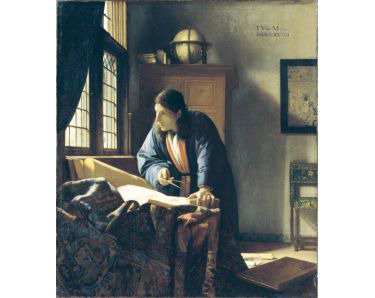The Golden Age
dal 6/10/2010 al 22/1/2011
Segnalato da
Jan Vermeer
Rembrandt
Frans Hals
Peter Paul Rubens
the Brueghels
Jordaens and Teniers
Gerard ter Borch
Jan Steen
Jan van Goyen
Cornelis de Heem
Karel van Mander
Dirck van Baburen
Abraham Mignon
Adriaen Brouwer
Jochen Sander
6/10/2010
The Golden Age
Guggenheim Museum, Bilbao
130 paintings, most from the 17th century, by Dutch and Flemish masters

From October 7, 2010 to January 23, 2011, the Guggenheim Museum Bilbao will present The Golden
Age of Dutch and Flemish Painting from the Städel Museum, a splendid selection of masterpieces
from the Städel Museum in Frankfurt, one of Europe’s most important institutions. The Museum owns
a unique collection of seventeenth-century Dutch and Flemish paintings from the so-called Golden
Age, the period of greatest Dutch hegemony.
Installed in the galleries of the Museum’s third floor, and sponsored by Fundación BBVA, the exhibition
offers visitors a journey through 130 masterpieces from the period, most of which have never been on
display in Spain before. Through historical painting and portraiture, as well as genre painting,
landscapes, and still lifes, these works showcase the Dutch elite’s specific taste and particular ideals.
Curated by Jochen Sander, Deputy Director and Head of German, Dutch, and Flemish Painting at the
Städel Museum, the exhibition includes masterpieces by over 80 artists, including the most prominent
ones from this period: Jan Vermeer, Rembrandt, Frans Hals, Peter Paul Rubens, the Brueghels,
Jordaens and Teniers, Gerard ter Borch, Jan Steen, Jan van Goyen, Cornelis de Heem, Karel van
Mander, Dirck van Baburen, Abraham Mignon, or Adriaen Brouwer, among others.
In the decades after 1568, when the Netherlands revolted against Spanish Habsburg rule, the United
Provinces in the north successfully became a decisive power in world trade. A sense of identity and
national pride was formed against this background and the bourgeois business elite, who were
accumulating vast fortunes in those years, wished to capture their values and ideals in the paintings that
adorned their halls. From the standpoint of historiography, this period of economic bounty, reflected in
the quality of Dutch artwork, was called the Golden Age.
The seventeenth-century Dutch and Flemish paintings that played a central role in the collection of
merchant and financier Johann Friedrich Städel (1728–1816) make up a large part of the Städel
Museum collection, which was created in his hometown, the commercial metropolis of Frankfurt, after
his death in 1816. The contents of this collection, which has been built up for almost 200 years through
donations, as well as planned purchases of outstanding individual works, offer an overview of European
painting from 1300 to the present. Specifically, the collection of Dutch and Flemish painting from the
Golden Age garnered fame in the nineteenth and early twentieth century, ranking among the world's
foremost collections thanks to extraordinary acquisitions that continue to enrich it even today.
Scope of the exhibition
The Guggenheim Museum Bilbao presents an extensive selection of Dutch paintings enhanced by
significant and representative Flemish Baroque works in a thematic tour of five major sections that
correspond to the major painting genres in which the artists of the day specialized: still lifes, history,
landscape, portraiture, and genre painting and interiors, which attest to the Dutch elite’s tastes.
The achievements of the so-called Golden Age of Dutch and Flemish paintings, a period that spans
from approximately 1580 to the early eighteenth century, are exceptionally represented in The
Geographer, a masterpiece by the great Dutch painter Jan Vermeer that is on display in Spain for the
first time. The colorful pictorial elegance, optical delicacy, fusion of levels of consolidated genres, and
union of art and science combine to make this painting a symbol of Dutch painting of the period and
thus, one of the exhibition’s pivot points. For the first time since it was inaugurated, the Guggenheim
Museum Bilbao is welcoming a work by this great master, a pioneer in the use of optical tools, such as
the camera obscura, who produced just over thirty works during his career and whose relevance to art
history was not recognized until two hundred years after his death.
Sponsored by Fundación BBVA
Image: Jan Vermeer van Delft (Delft, 1632-Delft, 1675), The Geographer, 1669
For more information:
Guggenheim Museum Bilbao Communications Department
Ana López de Munain Tel: +34 944359008 Fax: +34 944359059 media@guggenheim-bilbao.es
Guggenheim Museum Bilbao
Avenida Abandoibarra, 2 Bilbao 48001
Hours: Tuesday to Sunday: from 10 am to 08 pm
Monday: July and August from 10 am to 8 pm; closed the rest of the year.
The Museum will be closed on December 25 and January 1. On December 24 and 31 the Museum will close at 5 pm.



